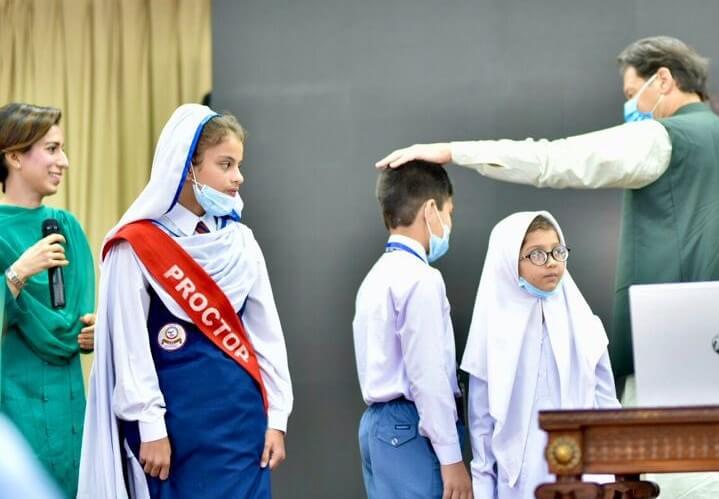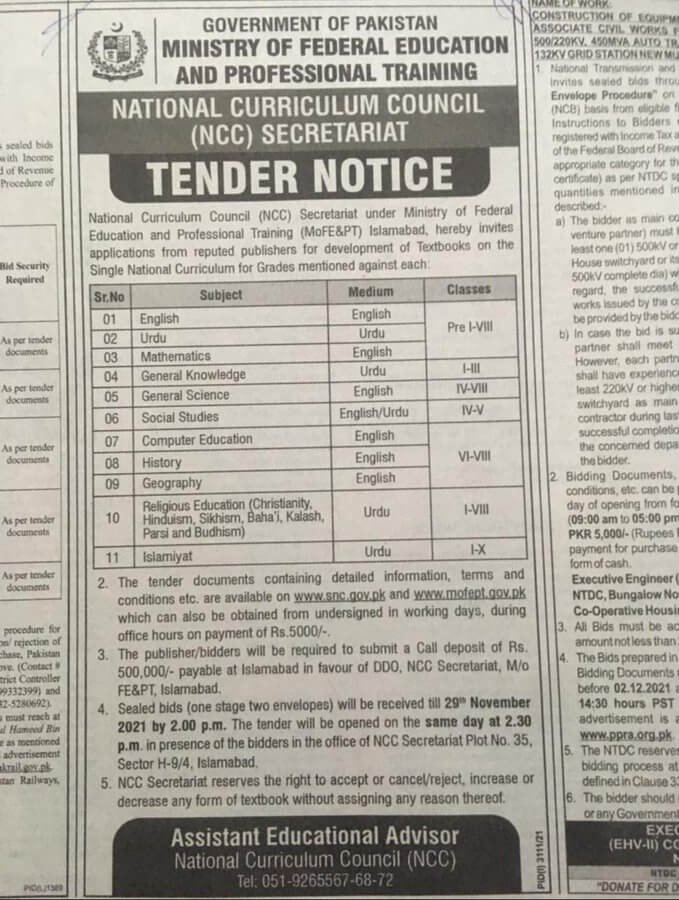
Will the government be able to eliminate radicalism through its curriculum reforms?
Dr. Mariam Chughtai, Director of National Curriculum Council and incharge of the Single National Curriculum, has time and again pointed towards the need to eliminate Islamic radicalism from our social and educational discourses. In a communique with friends and supporters, she has claimed that that religion is a “cherished constant” of the masses, and that timely caution is needed now to take this responsibility up as a way to protect it from political (mis)use. She has further clarified that unlike in the West, the dichotomy here is not between secularism and religion. Instead, the choice here is between religious pluralism and religious extremism.
There is an emphasis on inculcating religion-based values in compulsory subjects as well. In a recent webinar, Sohail bin Aziz, Deputy Director SNC also reasserted the need to introduce concepts on environmental care and civic responsibility in light of Islamic teachings. It comes in continuation of a series of other similar statements by the Prime Minister Imran Khan, Federal Minister for Education Shafqat Mahmood, and Provincial Minister for Education Murad Raas, based on the assumption that values based on majoritarian religion here will fix many problems with our students attaining their social and knowledge skills. Dr. Chughtai further insists that weighing in on Islamic content in the curriculum will facilitate the state in realizing goals of Compulsory Quran Education Act, whereby a space can be created for understanding the Quran and its inherent values of justice, equality, and brotherhood.
However, the intentions are reflected as such in the compulsory History curriculum for classes 6-8, which is to be taken by both Muslim and non-Muslim students.

(source: https://sncfeedback.org/snc_history_curriculum_6_8 )
This example ( unit-6 from grade VI history curriculum) begs one to question whether including complex Islamic themes in compulsory subjects is effective in inhibiting values for social justice? Would this skill “to justify” the concept of Dhimmi be able to generate the desired values without its accompanied Islamic jurisprudence and interpretation of holy texts? Would it not make sense if all religious content is instead taught in the compulsory Islamiyat subject that’s age friendly and appropriate? And most of all, is it acceptable for the the state–being the direct party to SNC development–to promote ideas that pose a direct challenge to equality status of all citizens (irrespective of religion) in the constitution.
What are the liberal SNC critics saying?
The assertion and the ways forward for SNC in this regard are highly problematic. In fact, populist slogans, actions and experiments by the architects and proponents of SNC are only there to obfuscate the access and quality shortfalls in our education systems. The overzealousness about religion expressed by policy makers looks more like a diversion from the actual focus on students graduating with skills that are incompatible with modern economic and social requirements. Any critical voice raised by liberals is conveniently shot down by the powers that be in the name of religion, thereby deeming the topic off-limits altogether (it is inherently similar to eliminating any chance for legitimate discussions on blasphemy laws over the fear of extremist repercussion). Sending out ideas that the sole criticism is about removing Islam from curriculum is misleading and deliberately aimed at provoking the right-wing extremists towards liberals. Their criticism has, in fact, consistently been about the violation of the constitution, taking away the space for critical thinking for students, and misaligned or irrational application of the minimum standards that remain incompatible to learning needs and aspirations of the students. In fact, the idea of homogenization of standards without taking into light the ground realities of our diverse learning environments is the biggest objection raised by them, and so far, their fears are proving to be right about SNC creating implementation confusion and causing obstacles in the path for quality education. It is evidenced from the fact that the government is revising the entire curriculum and textbooks for primary level AFTER implementing SNC last year. One then wonders how will students in primary classes make up for the year lost to haphazard implementation of SNC?

Any way forward to address Hate-speech?
There should be no doubt that the liberals have for long been pinpointing hate-speech in varying degrees used against religious and ethnic minorities in textbooks. Previous and current governments in Punjab, Khyber Pakhtunkhwa and Sindh managed to address and acknowledge unintentional consequences of the certain knowledge concepts and were receptive to the ideas of progressive reforms, albeit strong resistance coming from the right-wing political and religious parties. Such reflection is also expected from the SNC project, however, there remains much to be desired for, especially when Dr. Mariam Chughtai herself is a key figure herself in developing compulsory History Curriculum for middle level students.



